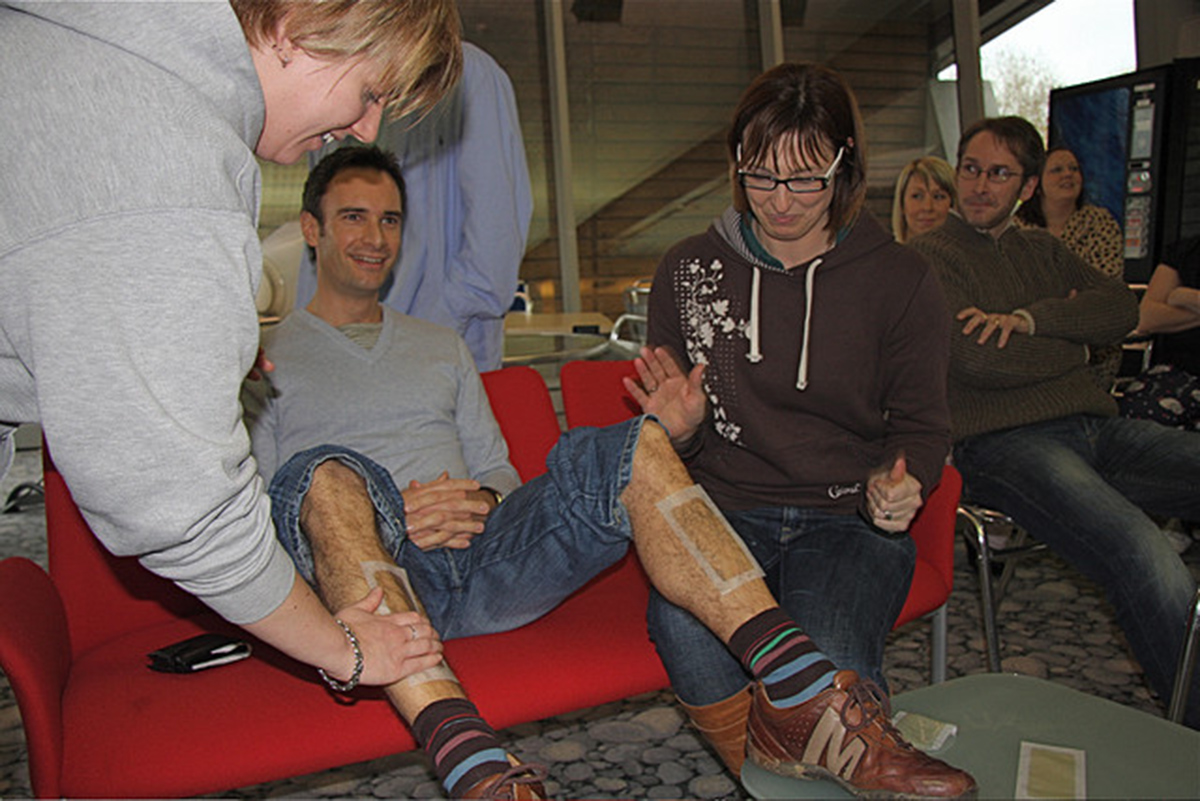Table of Contents
Who Shouldn't Be Waxed?
OK, back to the story about the woman who nearly died from her Brazilian wax. She suffered from poorly controlled type 1 diabetes, and her case led to a review that ended with the conclusion that waxing isn't without risks. It noted that "waxing can predispose to certain bacterial and vulval infections". Those can occur through "auto-infection" — when the area you are about to get waxed comes into contact with bodily fluids it shouldn't be in contact with, to put it politely — but also because creams, towels, wax, spatulas and other equipment used during the waxing process may be contaminated by nasties from other people's bodies. Good salon hygiene is key, then.

Still, the review warned that the number of people with conditions that severely compromise their immune systems has grown over the last two decades. Immunosuppressed individuals — those who have diabetes, HIV, or had an organ transplant, for instance, are particularly at risk of severe complications from cosmetic waxing. Diabetes, the review noted, places people at risk of "common infections, including bacterial skin and mucous membrane infections" as well as invasive group A streptococcal disease.
If you do not have a weakened immune system but do have an open scrape or cut, or a skin infection, you should wait until your problem has cleared up before getting waxed. People who use Retin-A and Accutane shouldn't have any kind of facial waxing. Other medications, such as antihistamines, tetracycline, and blood-thinning drugs, make you more sensitive to side effects from waxing as well. If you are on any kind of medication, I'd advise you to ask your family doctor and your aesthetician before you subject yourself to this hair removal method.
READ Different ways of hair removal
Questions To Ask Your Beautician
Your health and safety will be the absolute priority of any reputable salon. Aestheticians should therefore wash and disinfect their hands and wear new disposable gloves that weren't used with anyone else before touching your body. The sheets or paper covering the bed on which you get your waxing done should be fresh, the creams used should come with pumps, and any long-term equipment that is used during the process (such as tweezers) should have been sterilized in an autoclave before it touches you. Very importantly, you should make very sure there's no "double dipping" going on at your salon. Douple dipping is when a wax stick is applied to your body and then returned to the wax pot for a second application. Needless to say, this contaminates the wax pot with stuff you don't want in there and that will make you ill.
Asking about all these things while you are also taking a good old look around the salon to make sure everything generally looks clean will help you ensure that the salon you chooose is a place worthy of making your body beautiful.
- Photo courtesy of quapan: www.flickr.com/photos/hinkelstone/13453899453/
- Photo courtesy of holiday-extras: www.flickr.com/photos/holiday-extras/3029168755


Your thoughts on this